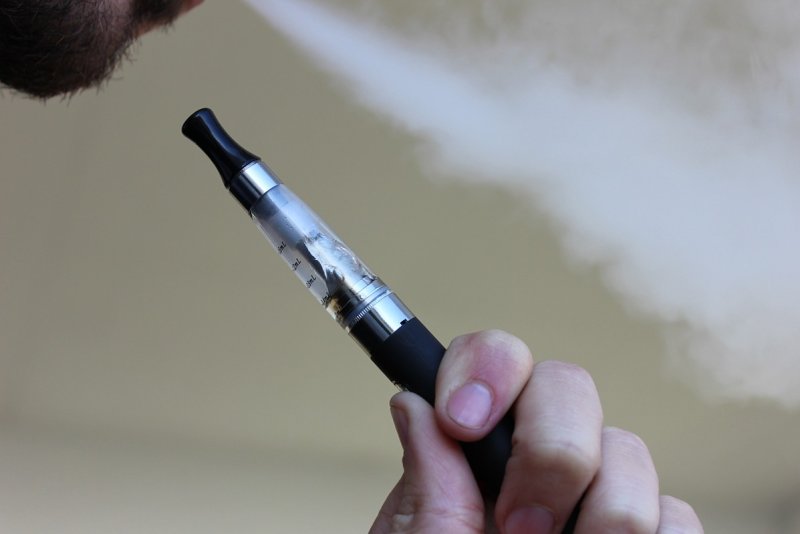The U.S. Food and Drug Administration is inspecting postal facilities in connection with a U.S. outbreak of vaping-related illness, the agency said Friday. Photo by lindsayfox/Pixabay
Oct. 11 (UPI) -- The U.S. Food and Drug Administration and Customs officials are inspecting postal facilities to help trace the supply chain of vaping products linked to lung injuries that have killed 26 people and sent 1,299 others to the hospital in 49 states, the FDA said Friday.
Ned Sharpless, the FDA acting commissioner, said his agency is monitoring facilities in the United States where mail from more than 180 countries is checked by customs operators for illicit materials.
Sharpless did not identify which countries might be sending illegal materials into the United States that could be causing the vaping illness.
In a telephone press conference Friday with doctors from the Centers for Disease Control and Prevention, investigators from FDA and CDC said they still believe that evidence for the illness so far points to illicit THC-containing vapes, most likely obtained on the street.
Both federal agencies have recommended that people stop using THC vapes while the investigation is ongoing and also not add any substances to e-cigarettes or vapes, said Anne Schuchat, principal deputy director of the CDC.
The illness has been named "e-cigarette, or vaping product use associated lung injury" in a report from the CDC's Morbidity and Mortality Weekly Report.
As influenza season approaches, the CDC also released updated recommendations for doctors who may see symptoms from the lung illness that resemble flu symptoms, Schuchat said.
For the first time, investigators said "a handful" of patients had been readmitted to hospitals with recurring symptoms between five and 55 days after being released, Schuchat said. It was unclear whether those patients had resumed vaping, or had other reasons for a relapse, including improper tapering down from steroid treatments given in the hospital.
Patients who were hospitalized experienced symptoms of coughing, shortness of breath or chest pains, and some also have experienced nausea, vomiting or diarrhea, as well as fatigue, fever or weight loss, the CDC said.
The FDA's Forensic Chemistry Center in Cincinnati has received more than 700 devices, cartridges and packages from state health agencies and patients for the investigation, said Mitch Zeller, director of the FDA's Center for Tobacco Products. Not all all products can be tested because some are empty or have very little liquid, he said.
However, the FDA still is testing for a THC cutting agent, vitamin E acetate, Zeller confirmed. Vitamin E acetate was found in 37 tested vape cartridges at levels between 23 to 88 percent, he said. The agency also is testing for heavy metals, pesticides and other adulterants and poisons, he said.
The outbreak has been observed primarily in young men, with 80 percent of reported patients under age 35 and more than one-third of patients under the age of 20, the CDC said Thursday.
Meanwhile, Washington Gov. Jay Inslee on Thursday announced a 120-day ban of all flavored vaping products, including nicotine cigarettes and THC vapes. Those vapes are sold legally in Washington at recreational and medical marijuana dispensaries.
Flavors of THC vapes that are now banned include fruit, chocolate, vanilla, honey, dessert, alcoholic beverage, candy, mint, wintergreen and herb spice. Industry leaders say that the best-selling THC vape products sold in the state are flavored.
"We cannot wait to act on this very important public health issue," Inslee said in a statement. "It comes down to protecting the health of Washingtonians, especially young people. These emergency rules will help protect public health and safe lives."
Last month, Inslee asked the Washington State Board of Health to craft new rules regulating vaping products in the state.
Similar bans of flavored vaping products have been challenged in court in Massachusetts and Michigan.















